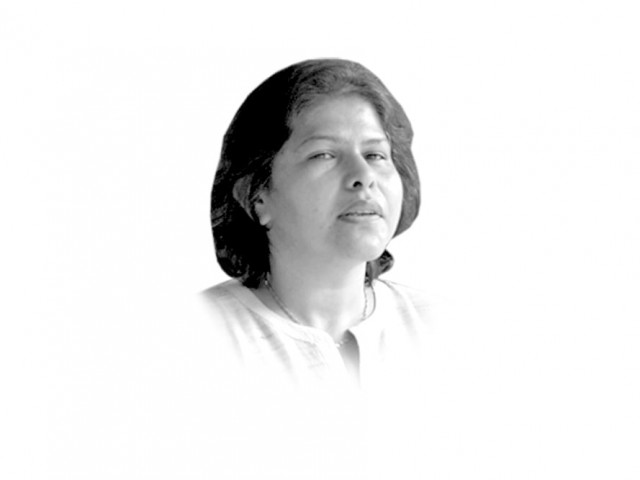Post-colonial state and society in Pakistan
The biggest strength and security of this country is its human resources. It's time we invested in it wholeheartedly.

Why shouldn’t the 200 services be closed down when people won’t pay for them or take responsibility for keeping such services afloat? Moreover, what’s the point in forcing the government to keep the railway running without fundamentally considering the origin and depth of the crisis that the department faces today?
The railways supposedly thrived under General Pervez Musharraf. But the trick by the former ISI chief Javed Ashraf Qazi was to see the railways' assets rather than do anything drastic with the department’s management. Being a public sector organisation, the railways cannot ever hope to make money because a general trend is that our people hate to pay for public services. A few months ago, I remember a statement made by the renowned former Pakistani diplomat Tariq Fatemi. Asked in the US that why didn’t people in the tribal areas pay their electricity bills, his response was that this was because of the attitude of local people and a carry-over from the colonial days. Not paying taxes was part of the rebellion against the British masters. Unfortunately, the majority of Pakistanis love to make money at the expense of the state. And the question is why should the state keep paying?
But then there is a bigger problem of Pakistan Railways being forced to lose out to the military’s transportation giant, the NLC. Lieutenant-General Saeed Qadir was asked to set up the organisation to tackle the ongoing problem of grains being stuck at Karachi port. Instead of solving that matter, the Zia regime went ahead and established a mega organisation which later took away the bulk of the railway’s cargo business. The railway makes no money really from passenger transport. Its main bread and butter is cargo and this got diverted to the NLC. By the mid-1990s, Pakistan Railways was handling three per cent of the cargo business as compared to the NLC’s over 57 per cent.
The case of the HEC is no different either. Sadly, none of our public sector institutions can compete internationally. This is not just because we are a poor country but because we have extremely poor human resources and are generally unwilling to take responsibility — it’s easy to blame the state instead. The recent protests are akin to when a motorcar driver has an accident due to the fault of a cycle wala. Most onlookers are too keen to jump on the car driver.
Similarly, the teachers and vice chancellors have been unable to introduce accountability and responsibility in the university system. I can at least speak about social sciences where the suffering is very long. The senior professors recruited below standard academics and let them prosper due to the patronage system rife in universities. With (honorary general) Dr Atta-ur-Rehman in the driving seat, things further deteriorated due to, besides other things, introduction of the local PhD system. Even today, there are many plagiarists who hold senior positions. A well-known medical college in Bahawalpur is a case in point. But this is just the beginning. Needless to say, it would have made better sense if the government had located financial cuts in a parallel strategy of re-evaluating higher education.
It’s also time the government admitted that the cuts were at the cost of military security. Resource allocation is a political decision which ought to be re-thought by the parliament and amongst civil society stakeholders. If this government claims to represent the people then it should desist from doing under the table politics and take people-friendly measures. The biggest strength and security of this country is its human resources. It's time we invested in it wholeheartedly.
Published in The Express Tribune, October 3rd, 2010.















COMMENTS
Comments are moderated and generally will be posted if they are on-topic and not abusive.
For more information, please see our Comments FAQ